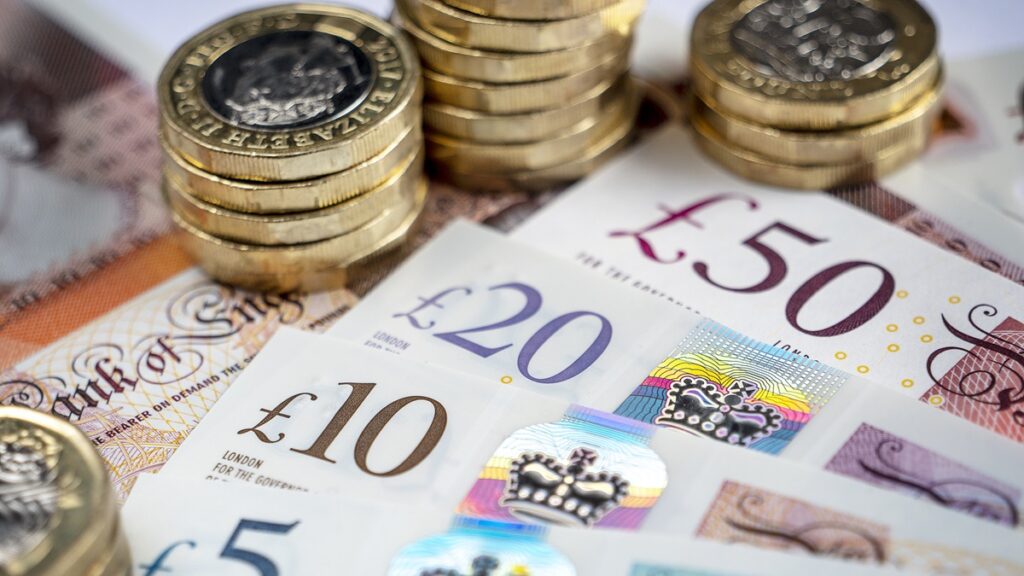Wage rises: A boost or brake on the economy?
Countries including the UK and US are increasing the legal minimum wage, but they must beware the dangers for businesses and employment

If you think things are pricey here, try ordering a burger in Washington DC.
The mood was sombre among attendees at a jamboree for central bankers and finance chiefs at the International Monetary Fund meetings in the US capital earlier this year – and that was just about the food prices. Life across the pond has become eye-wateringly expensive. Sticky inflation and the spectre of higher for longer prices is already pushing up costs in the world’s biggest economy.
But in DC, some of this has been self-inflicted. Take the innocuously named Initiative 82, which was designed to give workers a fair wage. The policy was voted in at the end of 2022, at a time when prices were rising by more than 7 per cent. The policy put the minimum wage for tipped workers on course to match those who don’t work for gratuities by 2027.
In practical terms, this means the absolute floor of $5.35 (£4.22) per hour in Spring last year is now $8 before tips. That will rise again to $10 on 1 July. In some other states the minimum is just $2.
Advocates argue that supporting a country’s lowest low paid workers will boost the economy by putting more money in their pockets. Others, however, caution that unsustainable pay rises lead to higher prices, business closures and unemployment.
DC’s move has led to a raft of surcharges being added to bills. Take the humble cheeseburger. At one place I dined, the $17 menu price (already up 20 per cent since the pandemic) was much higher once you added a 3.5 per cent surcharge, taxes and tips.
The menu devoted considerable space to explaining why those extra charges were slapped on in the first place, arguing that soaring costs made it unavoidable. And these charges were separate to tips, which legally have to go to workers. As another restaurant explains on the receipt next to its 20 per cent service charge, gratuities are not expected, but appreciated.
For a country that sees tipping as part of its DNA, many here feel obliged to stump up more. The norm has always been 18 to 20 per cent, there are even stories about diners being chased for it.
But paying yet another 20 per cent on top of already rising bills has become hard to stomach. Diners are already expected to cough up close to $20 for a large glass of wine. As one DC local puts it: “It’s insane”.
And it’s not just in Washington DC. Seattle increased its overall minimum wage to just over $20 at the start of this year. Operators of some delivery apps slapped an extra $5 on orders as a consequence. Customers balked.
US delivery giant DoorDash said it saw 300,000 fewer orders in Seattle after the wage increase, adding that wait times between orders for drivers had more than tripled as a result of the drop in demand. It warned that higher wages were “increasing costs to consumers, reducing sales to merchants and providing less work to fewer people.”
There have been similar warnings in the UK in recent years. When then chancellor George Osborne revamped the minimum wage in 2015, the Office for Budget Responsibility (OBR), the government’s tax and spending watchdog, said that a pay rise to 6 million workers would also cost 60,000 jobs.
Warnings about rising joblessness in the UK have not come to pass, with Britain largely a job-creating machine in the decade before the pandemic. The OBR has since said that there is “limited evidence that previous increases in the minimum wage had a significant impact on aggregate employment”. This has, in part, prompted the UK government to go further and faster in raising it, including two double-digit increases in as many years.
But the experience in DC has been very different. Initiative 82 almost doubled the minimum in just over a year – something nobody can ignore against a backdrop of already rising prices. Even Osborne pegged his aspirations to reality, with the former Chancellor starting at £7.20 and rising to £8.72 in 2020 in proportion with average wages.
Nevertheless, British bosses are starting to count the cost of mandated pay rises. Many have raised their concerns with Bank of England policymakers, who regularly travel across the country to take the temperature of the economy. Higher wages and higher prices mean higher for longer interest rates. That’s painful for the whole economy.

We’re partly seeing the impact in services inflation, which is closely linked to the wages of shop and bar staff and remains well above 5 per cent. After all, someone has to foot the bill, and many businesses are passing the costs on to diners.
The average price of a main course, dessert and cup of coffee at a UK restaurant has climbed to £25.57 today from £23.76 a year earlier, a near 8 per cent increase according to the Office for National Statistics (ONS). That compares with an overall inflation rate of 2.3 per cent in the year to April.
Some firms have been absorbing those costs. But many small and medium-sized businesses are not in a position to do so, with potentially large consequences. Fr example, career ladders risk being shortened or even removed as higher costs reduce promotion opportunities. Fewer managers are then forced to take on even more responsibilities.
Some believe it’s already happening. “I think there has been a thinning of management tiers, especially in smaller family businesses where family members can pick up the slack,” says the boss of one major company. “This raises some interesting questions about managerial overload. And changing production processes haven’t really taken off outside fast food restaurants”.
Britain has one of the most flexible job markets in Europe. It should be celebrated and protected, not eroded with increasing costs and the burden of red tape. Single measures often do no great harm on their own. But the danger is that the government ends up slow boiling a frog.
The independent body that recommends annual increases in the national living wage is now calling for the legal minimum to be paid to all over-18s instead of starting at 21. The move would cost businesses tens of millions of pounds and add to an already increasing raft of costs.
The journey towards a higher minimum wage goes on in DC. But there are limits and it feels like we are getting closer to that tipping point both here and in the US. A high growth, high wage, high-skilled economy is something we should all aspire to, but not by mandate. And not at the cost of a big increase in unemployment. After all, what’s the point of higher wages if you don’t have a job.
Szu Ping Chan is economics editor of The Telegraph



